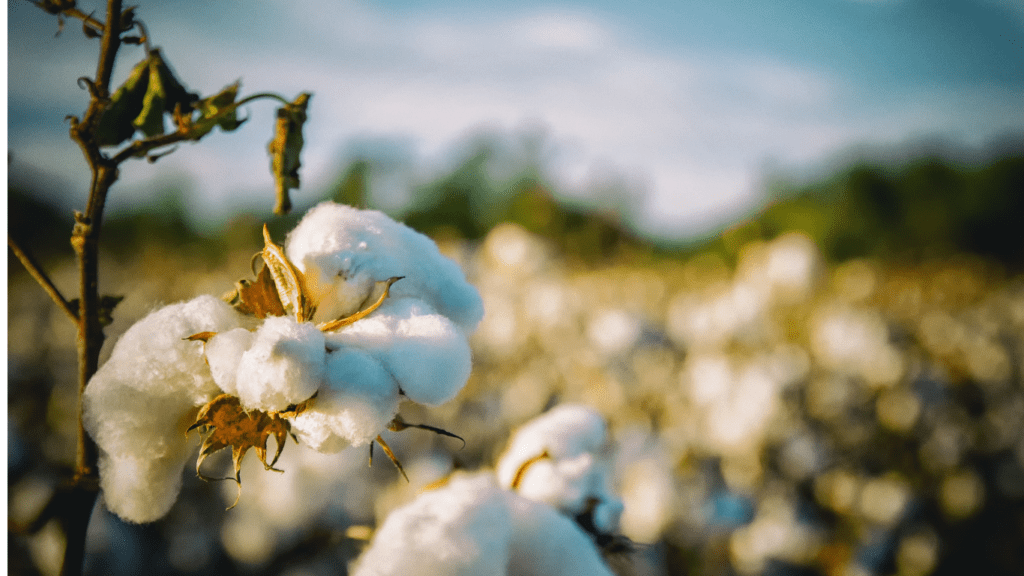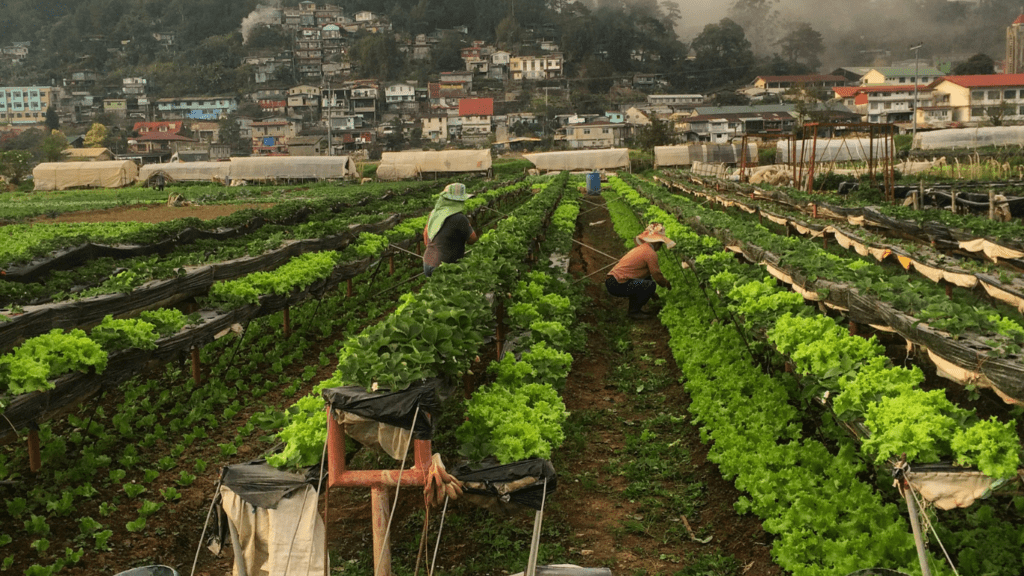Benefits of Organic Cotton for Personal Health
Organic cotton offers several health benefits that make it an excellent choice for personal use.
Reduced Exposure to Toxins
Organic cotton provides a toxin-free experience. Conventional cotton production uses such as:
- synthetic pesticides
- herbicides
- fertilizers
that can linger in the fibers.
When I wear organic cotton, I’m avoiding these harmful chemicals that could be absorbed through my skin. The absence of toxins ensures my clothing is safer and healthier.
Skin Benefits and Hypoallergenic Properties
Organic cotton offers hypoallergenic properties. Since no irritating chemicals are involved in its production, it reduces skin irritations and allergies.
I find organic cotton beneficial for my sensitive skin because it’s less likely to cause itchiness, rashes, or other allergic reactions. The natural fibers are gentle, making them ideal for those with delicate or reactive skin.
Environmental Impact of Organic Cotton Farming
Organic cotton farming offers significant environmental benefits when compared to conventional methods.
Lower Water Usage
Organic cotton requires less water than conventional cotton. The Textile Exchange reports that organic cotton uses up to 91% less “blue” water from surface and groundwater sources.
This reduction happens because organic farming improves soil’s ability to retain water, relying more on rainwater and reducing irrigation needs. In drought-prone areas, these practices can conserve precious water resources and sustain farming over longer periods.
Biodiversity and Reduced Soil Degradation
Organic cotton farming fosters biodiversity by avoiding synthetic pesticides and fertilizers. This approach encourages the presence of beneficial insects, birds, and other wildlife.
According to the Soil Association, organic fields can have up to 50% more species than non-organic ones. Crop rotation and cover crops enhance soil health, reducing erosion and degradation. These methods maintain soil structure and fertility, making land more productive over time.
Additionally, organic practices help sequester carbon, mitigating climate change impacts.
Economic Advantages of Choosing Organic Cotton

Choosing organic cotton supports not only environmental sustainability but also offers economic benefits. These advantages impact both consumers and farming communities.
Supporting Sustainable Farming Communities
- Organic farming creates stable jobs by promoting labor-intensive practices that avoid synthetic chemicals.
- Offers farmers a healthier work environment.
- By encouraging crop diversity, organic cotton farming helps farmers avoid dependency on single crops, which can lead to economic instability.
- Fair trade certifications associated with organic cotton also guarantee better prices and wages for farmers, creating a more secure livelihood.
Long-Term Cost Effectiveness
Organic cotton products often have higher initial costs, but their durability and quality can lead to savings over time. Organic farming methods improve soil health, which reduces the need for expensive synthetic fertilizers and pesticides.
Healthier soil produces more resilient crops, reducing the risk of crop failure. Consumers benefit from the longer lifespan of organic cotton items, which need replacing less frequently.
How to Identify and Choose Organic Cotton Products
Organic cotton products offer numerous benefits for health and the environment. Knowing how to identify and choose the right products can make a significant impact.
Labels and Certifications to Look For
Certified organic cotton products must meet strict standards. Look for labels like Global Organic Textile Standard (GOTS), which ensures textiles contain at least 70% organic fibers and meet environmental and social criteria.
Other certifications include the Organic Content Standard (OCS) and the Better Cotton Initiative (BCI). These labels guarantee that the cotton used is grown without synthetic pesticides and fertilizers, protecting both the consumer and the planet.
Tips for Shopping Organic Cotton
When shopping for organic cotton, start by checking the tags and product descriptions.
Retailers often highlight organic materials in their eco-friendly lines. Prioritize brands that showcase their certifications and commitment to sustainability.
Pay attention to the feel and quality of the fabric; organic cotton is usually softer and more durable.
Lastly, support local markets and artisans who offer handmade organic cotton products, which helps sustain ethical labor practices and reduce the carbon footprint associated with transportation.
 Williamond Hougherth - Founder of Green Commerce Haven
Williamond Hougherth is a visionary entrepreneur and environmental advocate with a deep passion for sustainable business practices. As the founder of Green Commerce Haven, Williamond has dedicated his career to promoting eco-friendly initiatives and supporting the growth of green startups. His extensive knowledge in green marketing strategies and organic products has made him a trusted voice in the eco-commerce industry. Through Green Commerce Haven, Williamond provides valuable insights on eco news, green tourism, and sustainable living, helping businesses and consumers alike make informed decisions that contribute to a healthier planet.
Williamond Hougherth - Founder of Green Commerce Haven
Williamond Hougherth is a visionary entrepreneur and environmental advocate with a deep passion for sustainable business practices. As the founder of Green Commerce Haven, Williamond has dedicated his career to promoting eco-friendly initiatives and supporting the growth of green startups. His extensive knowledge in green marketing strategies and organic products has made him a trusted voice in the eco-commerce industry. Through Green Commerce Haven, Williamond provides valuable insights on eco news, green tourism, and sustainable living, helping businesses and consumers alike make informed decisions that contribute to a healthier planet.
